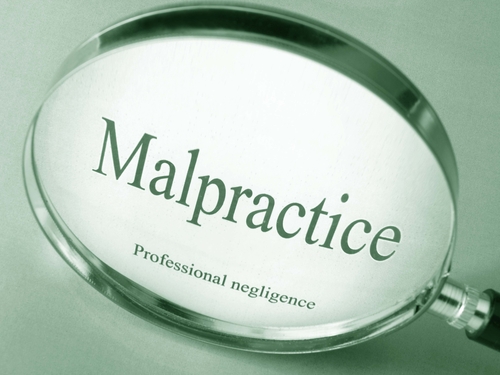Dentons loses appeal to overturn $32.3M malpractice judgment; verein conflict at issue

Image from Shutterstock.
An Ohio appeals court has upheld a $32.3 million malpractice award to a former Dentons client that says it had to scramble to find new lawyers after the law firm was booted from its case.
The Court of Appeals of Ohio ruled for Dentons client RevoLaze in an April 28 opinion, report Law360, Reuters and Bloomberg Law.
Dentons had been disqualified because its Canadian arm, part of its Swiss verein structure, had represented an opposing litigant.
Dentons’ Swiss verein structure consists of multiple partnerships that adopt a common brand but remain financially distinct. The Dentons verein has more than 6,600 lawyers working in offices across the United States and in more than 74 countries.
The Ohio appeals court said Dentons couldn’t claim that it was insulated from its Canadian affiliate.
Dentons in the United States’ “protestations to the contrary, the overwhelming evidence suggests the Dentons verein operated as a single firm,” said the opinion by Ohio’s Eighth District Court of Appeals in Cleveland.
The opinion could have a wider impact. Other law firms operating as vereins include Baker McKenzie, DLA Piper, Squire Patton Boggs, Norton Rose Fulbright and Littler Mendelson, according to Boomberg Law.
The malpractice case stemmed from a patent enforcement case before the International Trade Commission. RevoLaze had alleged that the Gap and other retailers were violating RevoLaze’s patents by importing jeans that used its patented laser process to achieve a faded look.
Dentons had discounted and capped its fees under an agreement with RevoLaze in an exchange for a 5% share in the proceeds that RevoLaze would achieve through patent enforcement.
RevoLaze sued for malpractice after an administrative law judge ruled that Dentons in the United States couldn’t represent RevoLaze because Dentons had performed work for the Gap in Canada. RevoLaze said the mounting expenses of replacement attorneys led it to settle with ITC defendants.
Dentons had opposed the Gap’s motion for disqualification on the ground that Dentons in the United States and Canada were separate law firms that didn’t have access to each other’s files, that didn’t share client information unless acting as co-counsel, that didn’t share profit and losses, and that were financially and operationally separate.
Dentons also said the retainer agreement signed by the Gap with Dentons in Canada had waived potential future conflicts.
The Ohio appeals court, however, said Dentons operated as one firm. The court noted testimony by an expert witness that Dentons’ website listed all the verein lawyers collectively, that all its lawyers’ email addresses ended with “dentons.com,” that the law firm had a common conflicts base, that it shared confidential information about clients throughout the verein, and that Dentons dealt with each office as if it was part of one firm.
“We find Dentons US’[s] membership in a verein, with a common conflicts base, that shares client confidential information throughout the organization, is irreconcilable with Dentons US’[s] contention that it was separate from Dentons Canada,” the Ohio appeals court said.
The Ohio appeals court said Dentons should have obtained written consent from the Gap and RevoLaze before beginning the RevoLaze representation.
The written consent should have provided RevoLaze with a full explanation of the conflict; should have included alternatives, such as seeking an independent opinion on the conflict issue; and should have suggested that RevoLaze retain standby counsel in the event that Dentons was disqualified, the court said.
A Dentons spokesperson defended its conduct.
“The essential issue in this case is whether a law firm can rely on one client’s written consent regarding a future conflict of interest,” the spokesperson told Bloomberg Law in a statement. “We acted properly, ethically and consistent both with our duties to our clients and with our firmwide conflicts policy in relying on such a consent.”
The case is RevoLaze v. Dentons US.
Write a letter to the editor, share a story tip or update, or report an error.


